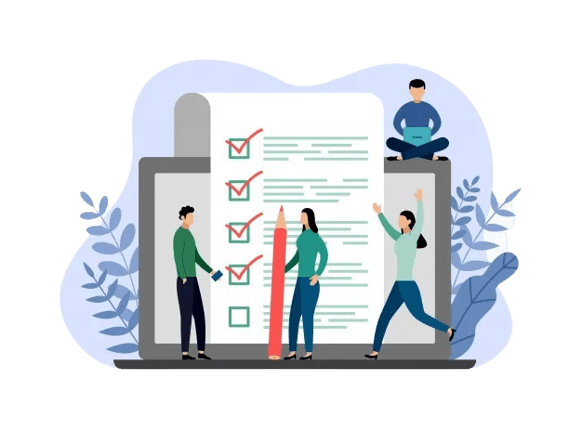Time OCD Assessment
3 Min Free Time OCD Assessment
Who Can Benefit From This Time OCD Assessment?
The Time OCD assessment can benefit individuals who suspect they may have an obsessive-compulsive disorder (OCD) specifically related to time. It can help individuals assess the extent to which their preoccupation with time affects their daily life, mental well-being, and relationships.
This assessment can provide insights and guidance for those who experience excessive worry, anxiety, and repetitive behaviors associated with timekeeping. However, it’s important to consult with a qualified healthcare professional for a comprehensive evaluation and appropriate diagnosis.

Time OCD Assessment Accuracy

The accuracy of the Time OCD assessment depends on various factors. While the questions are designed to capture common symptoms and behaviors associated with time-related OCD, it is important to note that this assessment is not a substitute for a professional diagnosis.
A qualified healthcare professional or mental health practitioner is best equipped to assess and diagnose OCD or any other mental health condition accurately. The assessment can provide a preliminary indication of potential time-related OCD symptoms but should be followed up with a comprehensive evaluation by a healthcare professional for a definitive diagnosis.
Types of Time OCD Assessment
Time Checking
Measures the frequency and intensity of repetitive time-checking behaviors.
Punctuality Anxiety
Assesses the level of anxiety & distress associated with being late or its fear.
Time Awareness Disturbance
Assesses difficulties in perceiving and accurately estimating the passage of time
Time-Related Rituals
Assesses the presence and severity of compulsive rituals associated with timekeeping.
Schedule Obsession
Evaluates the extent of preoccupation with rigid scheduling and minute-by-minute planning.
Temporal Obsessions
Measures the degree of distress caused by intrusive thoughts or obsessions related to time.
Handling Time OCD
Managing time OCD (Obsessive-Compulsive Disorder) can be challenging, but there are strategies that can help. Here are some approaches:
- Seek professional help: Consult with a mental health professional experienced in treating OCD. They can provide a proper diagnosis and develop a personalized treatment plan.
- Cognitive-behavioral therapy (CBT): CBT, specifically Exposure and Response Prevention (ERP), is often effective for OCD. It involves gradually exposing oneself to time-related triggers while resisting the urge to engage in compulsive behaviors.
- Medication: In some cases, medication, such as selective serotonin reuptake inhibitors (SSRIs), can be prescribed to help manage the symptoms of OCD. Consult a psychiatrist for appropriate medication options.
- Mindfulness and relaxation techniques: Practicing mindfulness meditation, deep breathing exercises, and relaxation techniques can help reduce anxiety and promote a sense of calmness.
- Challenge irrational thoughts: Work with a therapist to identify and challenge irrational thoughts and beliefs related to time. Replace them with more realistic and balanced perspectives.
- Establish a structured routine: Creating a structured daily routine can provide a sense of predictability and reduce anxiety associated with time. Set aside specific times for activities, including relaxation and self-care.
- Gradual exposure and desensitization: Gradually expose yourself to situations that trigger time-related obsessions or compulsions, starting with less anxiety-provoking situations and gradually progressing. This can help reduce the fear and discomfort associated with time-related concerns.
- Support network: Build a support network of understanding friends, family, or support groups who can provide encouragement and understanding during difficult times.
Remember, everyone’s journey with OCD is unique, and it may take time to find the strategies that work best for you. Patience, persistence, and professional guidance are key in managing time OCD effectively.

